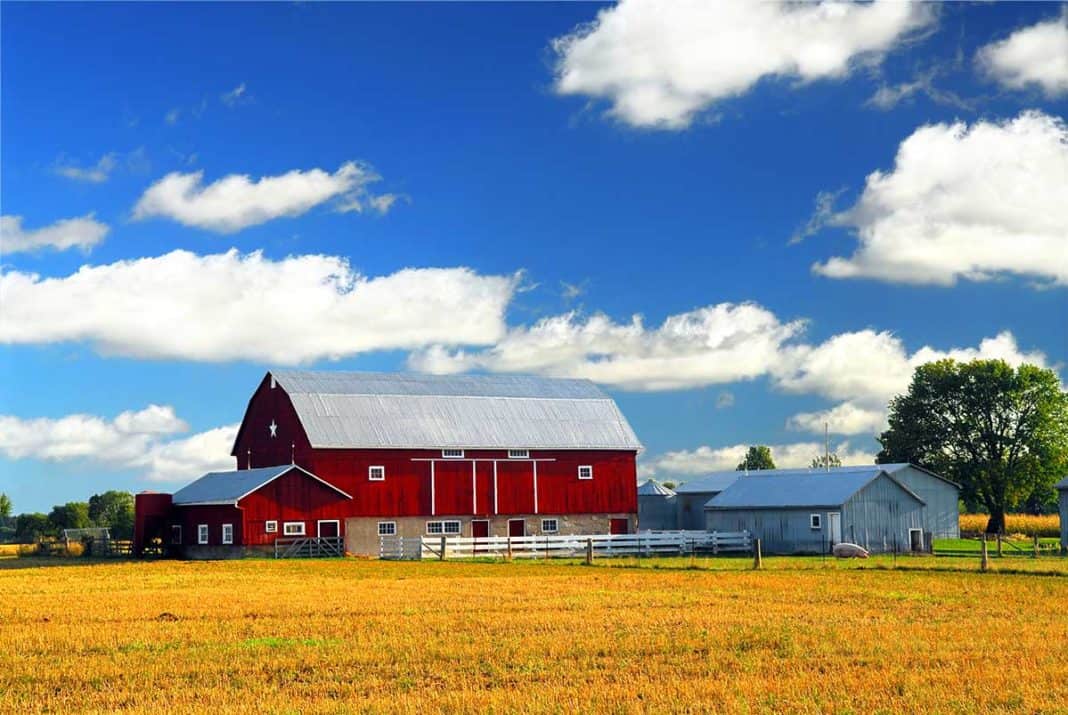ONTARIO—The Ontario government has cancelled its passage of a housing proposal that farmers say would have had a ‘catastrophic’ impact on farmland and livestock operations. Farmers throughout the province are welcoming the government’s decision on farmland severances.
“The fact that the government is pulling back and going to look at this proposal is fantastic, and looking at this whole issue is great. Let’s move forward,” said Mike Johnston, president of the Manitoulin-North Shore Federation of Agriculture (MNSFOA). “The government is rethinking it. I’m not sure they have totally abandoned the proposal, but they have announced they are taking this back to the drawing board.”
“We are not averse to houses being built,” Mr. Johnston said. “The idea behind the proposal was as farm families grow and if children in the family stay, they will want to develop and build a house on the property. But as farm families move away, property can be sold, and what if a purchaser can’t get along with a farm around their property because of things like dust and manure smell?”
“All of this ties down what a farmer can do, and any expansion (they) can look at,” said Mr. Johnston. “And there would be more conflicts with people living around the farm property. I know there are a few other things in the proposed bill that would take away the Greenbelt and lands being protected. Once you take farmland away, you can never get it back. We have already lost lots of farmland in Ontario, it is still happening at an alarming rate, and there is no way of bringing back farmlands on these properties once the topsoil goes somewhere else.”
“In bringing a message, it often isn’t about one voice. It is many voices, one message,” said Peggy Brekveld, president of the Ontario Federation of Agriculture (OFA) in a May 30 message she posted on the OFA viewpoint. “Ontario’s farmers have been vocal and united in recent weeks in asking the provincial government to take a pause on its recent proposed Provincial Planning Statement and proposed Bill 97. We are thankful that government has listened to our most significant concern and is taking steps to address it.”
The OFA was joined by Ontario’s other two general farm organizations, 11 commodity and agricultural groups and 30 of OFA’s local county federations of agriculture in a broad-based coalition to urge the government to reconsider proposed actions that would severely threaten local farmland protection.
“In particular, this coalition has been strong in its opposition to a proposal from the government to allow up to three new severed residential lots on an existing farm property. Creating residential housing lots in agricultural areas has long been controversial, and the negative impacts for farming are well demonstrated,” wrote Ms. Brekveld.
Ontario boasts some of Canada’s richest and most fertile farmland, and the proposed severance plan poses risks to that farmland and taking it permanently out of agricultural production threatens the long-term sustainability of both farming and the food system we all depend on, she pointed out.
“Our coalition is also extremely concerned that increased residential lot creation in prime agricultural areas will create conflict between farmers and their non-farming neighbours for all aspects of regular farm activities,” stated Ms. Brekveld.
“This includes applying crop nutrients to the land, conflict about odours and noise, wildlife control and more. We also don’t want to lose the current minimum distance separation requirement, which requires minimum distances between houses and livestock barns and works well to minimize conflict between livestock farmers and residential areas and protect water resources,” continued Ms. Brekveld.
The single voice of this united coalition of farmers and agricultural leaders against legislation that could make it difficult or impossible for farmers to manage and expand their farm businesses in the future has been heard.
The farming community, including the National Farmers Union – Ontario, the OFA, Beef Farmers of Ontario, Dairy Farmers of Ontario, and others, indicated that those changes would hamper the growth of livestock farming, fragment the agricultural land base and risk inflating farmland prices, shutting out prospective new farms.
Premier Doug Ford met earlier this month with farmers and the government has decided not to proceed with the lot severance proposal, Minister of Municipal Affairs and Housing Steve Clark wrote in a letter to the OFA.
The minister had proposed a series of regulations along with a bill that would allow for more housing to be built beyond urban boundaries and in rural areas, including allowing up to three new lots on parcels of farmland. The government had originally suggested the severances as a way to support farm families, Minister Clark noted.
“We understand that farming is often a multi-generational family enterprise, and our government has been asked by many farmers to offer practical support to them and their families by making it easier for the next generation to live and work in the same place where they grew up,” he wrote. “At the same time, we have clearly heard the concerns that have been raised about the need to preserve Ontario’s farmland and we share that goal. We want to continue working with the agricultural sector to look at alternatives that would assist farm families in succession planning, but do not involve additional severances.”
The OFA said it was pleased the government heard farmers’ concerns, though they do see issues with other aspects of the bill that could lead to more loss of farmland. Ontario is losing an average of 319 acres a day, according to census data.
“We have some other concerns surrounding the issue of (ministerial zoning orders) and then some other aspects of the changes in Bill 97, but they’re things we can work with,” said OFA board member Ethan Wallace. “I think the one that could dramatically have a catastrophic impact on especially livestock agriculture was the three-lot proposal and seeing that there is movement on that issue is a very positive step.”
NDP agriculture critic John Vanthof, himself a dairy farmer by trade, raised the issue in the legislature and said farmers are not opposed to building more than one residence on an existing farmstead, but once the land starts being severed into new lots, it creates a host of problems, particularly for the livestock industry.
Livestock farmers are subject to rules that say they must be a certain distance away from their neighbours, and the more residential lots there are around that operation, the less ability they have to expand their operations.
Algoma-Manitoulin MPP Michael Mantha, who recently met with members of the MNSFOA said “They’re raising concerns about the severance of land and the effects it would have on food security, livestock and future farming opportunities. It will negatively impact future opportunities for new farmers because of the high costs of starting a farm.”
“And if we allow severances on farmland, if a young farmer sets himself up, if the land next door to them is severed he won’t be able (to expand). This is negative for farming infrastructure, not being able to build,” said MPP Mantha. “Once you take away pristine farming soils and land, they are gone forever.”
It’s not sustainable to lose 319 acres of farmland per day, MPP Mantha said. “The government really needs to look at the decisions they are making. They have huge impacts on agriculture.”
The value of frontline workers was realized during COVID and at the same time, “we found out how important farmers and locally grown food was,” MPP Mantha said. “Farmers are heroes.”





